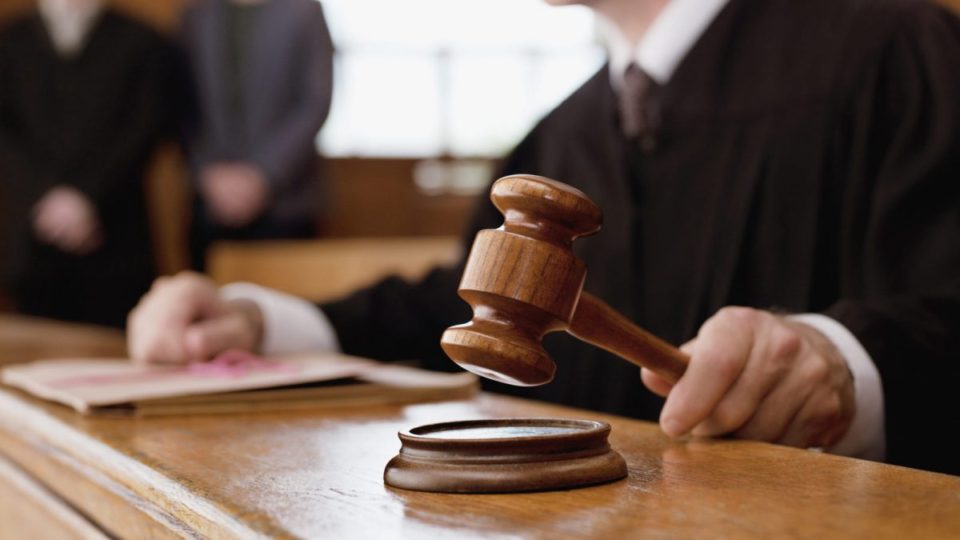- Legal Education and Access Portal
Enforceability of Human Rights Against Private Entities in Pakistan
INTRODUCTION
The concept of sovereignty is well-established under International law,[1] and it is this underlying notion on which the entirety of the international legal system is built on. States give up a part of their sovereignty when they take up the obligations on themselves by signing treaties. In other words, they cannot be bound to any obligations unless they consent to accept those obligations.[2] Post-World War II, when the world witnessed inhumane atrocities in different parts of the world, majority of the countries were willing to negotiate and recognize human rights as part of the international law. Subsequently, starting from the Universal Declarations of Human Rights[3] (which is not a treaty), several treaties came into force which put states under an obligation to protect and respect human rights along with providing remedies to violations of human rights. Like majority of other countries, Pakistan has also ratified a total of 9 treaties including International Covenant on Civil and Political Rights (“ICCPR”), International Covenant on Economic, Social and Cultural Rights (“ICESCR”), Convention against Torture and Other Cruel Inhuman or Degrading Treatment or Punishment, and Convention on the Elimination of All Forms of Discrimination against Women.[4]
The idea of holding a state accountable for its human rights violation is not new under modern international law, and states are held responsible to treaty-bodies and/or charter bodies whenever there is a violation of human rights guaranteed under international law. However, the issues arise when there are significant violations of international law by private entities. In such cases, international law does not apply directly to the private parties as the subjects of international law are the states.[5]
It is also difficult to enforce the fundamental rights laid down under the national framework of a country against the private parties. Therefore, the question arises as to how the private entities will be held accountable under the national and international legal system when they commit human rights violations? This paper will firstly revolve around the applicability of human rights treaties to Pakistan and their bearing on the private entities including businesses. It will then delve into the state protection provided in Pakistan to human rights by drawing on its domestic laws. The last part of the paper will be devoted to the models of human rights protection that are followed all across the world, followed by the model that is applicable in Pakistan based on a series of cases decided by its courts.
APPLICABILITY OF HUMAN RIGHTS TREATIES TO PAKISTAN
Human rights treaties, by their ratification, are not always enforced by states within their domestic frameworks.[6] The concept of “monists” and “dualists” states validly arise at this instance. These concepts are essentially about the relationship of municipal law with international law. Under the realm of “monists”, the local law and international law are considered to exist within the same legal system and therefore the ratification of treaties leads to direct application of those laws within the local realm.[7] On the contrary, “dualism” presumes that there exist two different legal systems – a municipal legal system and an international one. Therefore, the mere ratification of the treaty will not result in a binding law within the domain of municipal law.[8] The legislature of a particular country will have to enact the convention or the obligations arising from it to make it a law in the country. It is clear from these two realms that as far as the dualist states are concerned, the human rights treaties will have no direct application even though the states have ratified the treaties.
However, in Pakistan, the judiciary has been reluctant in strictly applying the principles of dualism whenever a question has arisen about the state’s international obligations vis-à-vis the treaties it has ratified. Pakistan is traditionally a dualist state, which means that the local courts of Pakistan cannot enforce the provisions of the treaties ratified by Pakistan unless they are enacted by the Parliament.[9] But in recent times, we have seen a different approach adopted by the Supreme Court of Pakistan in National Commission on Status of Women through Chairperson and others v. Government of Pakistan through Secretary Law and Justice and others.[10] The Supreme Court took a monist approach as far this judgment was concerned and held that Pakistan was bound by the treaties to secure rights provided in ICCPR and others conventions and no excuse could be given for its failure.[11] The Court discussed the obligations of Pakistan under International law and read those obligations independently, along with the Constitution of Pakistan, to decide that the jirgas violated human rights provided in the Constitution of Pakistan and International treaties of human rights. Although the courts of other jurisdictions have also used international covenants while deciding the issues of violation of human rights under their local framework, the judgment of Pakistan Supreme Court is distinguishable from those other judgments because the Court does not go into the distinction of monism and dualism. It does not mention anywhere as to why is it relying on the international covenants while deciding on the issue pertaining to violation of fundamental rights under the Constitution. This implies that the Court was inclined to use a monist approach while deciding the case.
In addition to this judgment by the Supreme Court, there are other instances as well where the superior courts have enforced the rights laid out in international conventions directly without any enactment by the legislation. In Messers GETZ PHARMA (PVT) LTD. through Authorized Person v. Federation of Pakistan, through Secretary, Ministry of National Regulation and Services and another,[12] the case was brought before the Sindh High Court about the alleged illegal patent and high pricing of a medicine generically known as ‘Sofosbuvir’. Although there is no explicit right to health or affordable drugs in Pakistan,[13] the Court interpreted Pakistan’s international obligations to enforce the right to affordable drugs in to the right to life[14] and right to dignity of a person.[15] The Court noted that the right to health is covered by ICESCR, which is ratified by Pakistan, and the said convention recognizes the right of nationals to the highest standard of mental and physical health.[16] According to Article 12.1 of ICESCR, there is a responsibility on states to provide essential drugs. The affordability section of ICESCR puts an obligation on the state to make all the drugs affordable and available for all the nationals, regardless of whether they are owned by the public or private sector. Therefore, it is the responsibility of the state to ensure that its nationals have means to access medicines.[17] The State cannot be permitted to allow expensive medicines that benefit only a limited portion of the society and is not used by a major part of the society. The Court held that the right to ‘access to affordable drug’ is recognized by Pakistan’s international obligations by virtue of its ratification of ICESCR, so it would be read into right to life and the government was asked to take cognizance.[18] Similar to the judgment of the Supreme Court, the Sindh High Court also enforced Pakistan’s international obligation into the domestic framework, without delving into the debate of monism and dualism, and therefore inferring that as far as the judgment of this Court was concerned, Pakistan is a monist state.
A similar judgment was rendered by the High Court of Australia in Minister of State for Immigration and Ethnic Affairs v. Ah Hin Toeh[19] where the court dealt with the question concerning the relationship of domestic law of Australia with its international obligations under human rights treaties. Unlike the judgment by the Pakistani Supreme Court, the Australian High Court noted that since the United Conventions on the Rights of the Child was not incorporated into Australian domestic law, it does not have the binding nature of law. However, the convention could be used as an interpretative tool and it created a legitimate expectation that the decision-maker would consider the convention when making any decisions.[20] In other words, the court expressly laid down that Australia is a dualist state. Regardless of that, the international obligations could be used as an interpretative tool when the domestic framework is ambiguous.[21] The Court’s language about the international convention as merely an interpretative tool distinguishes it from the judgment of Pakistani court. Therefore, the decision of Pakistani Supreme Court could be used as a tool, in future litigation, to invoke the human rights treaties directly before the courts.
Human Rights treaties are not directly applicable to private entities, including businesses because the subjects of international law are generally the states.[22] Private entities are registered in municipal laws of the country that they are working in, and therefore they will be governed by the local laws of that particular country. There is no binding law per se, that is directly applicable to these private entities under public international law. Therefore, from the traditional perspective, human rights treaties will not apply to private entities directly. Even if we are to apply the precedent laid down by Justice Saqib Nisar,[23] it is difficult to judge the enforceability of human rights treaties against private parties as the obligations resulting out of that judgment are against the government and therefore against the state organ. However, as this paper will lay down in the following part, there can be other ways through which human rights can be made applicable against private parties including businesses.
HUMAN RIGHTS FRAMEWORK IN PAKISTAN
Since human rights treaties are not directly applicable on private entities in Pakistan, this paper will now build on the framework through which the domestic human rights, enshrined in the Constitution of Pakistan or otherwise, can be enforced against private parties. Fundamental Rights are laid down under Chapter 1 of the Constitution (Article 8-28), while principles of policy are laid down under Chapter 2 of the Constitution (Article 29-40). Although the former has a juridical nature and the latter does not, principles of policy are used as an interpretative tool in the cases of enforcement of fundamental rights.[24] To enforce these fundamental rights, Article 199 of the Constitution provides jurisdiction to High Courts of the Country where they can “on the application of an aggrieved party, make an order giving such directions to any person or authority, including any government…” It is the language of this article that widens the scope of jurisdiction under Article 199, and it is not limited to the government only. It includes government, but it can extend to “any person or authority”. Similarly, Article 184 of the Constitution provides jurisdiction to the Supreme Court of Pakistan to enforce fundamental rights where there is a question of public importance as well, and it is also not limited to the government only.
This was recognized by the Supreme Court in Human Rights Case No. 18877 of 2018[25] that as long as the two parameters of article 184(3) are met i.e. breach of fundamental rights and public importance, the Supreme Court can and will take notice of enforcement of fundamental rights. The case concerned the constitutionality of high taxes on balance topping and call facilities. Although the majority opinion recognized the jurisdiction of Supreme Court under Article 184(3), they refused to apply it in this case because they believed that the tax had relevant statutory backing.[26] However, the striking feature of this case is its dissenting opinion which was authored by Justice Ijaz ul Ahsan, who construed the jurisdiction of Supreme Court under Article 184(3) in a much more robust manner than the majority opinion. He held that the powers under Article 184(3) are in the Constitution to protect people who are weak and cannot afford expansive litigation, but their rights are as ‘sacrosanct’ as those of the privileged classes who have all the resources to approach this court.[27] Before this case, it has been generally recognized by the Supreme Court, an example being the case Baz Muhammad Kakar v. Federation of Pakistan,[28] that wherever there is a violation of fundamental rights, the courts are obliged to exercise their powers and jurisdiction to enforce those rights. It can be seen from the provisions of the Constitution and the case-law mentioned, that the Supreme Court and High Court have the powers to enforce fundamental rights and that power is not only limited against the government. The subsequent part will build on its application against the private parties.
HUMAN RIGHTS PROTECTION MODELS
Before discussing the enforcement of fundamental rights against private entities, it is important to note that there are four models for the application of Constitutional human rights against private parties.[29] They are not exhaustive by any means, and not all the states need to fall into one of these four categories.[30] First, the direct application model, according to which the human rights laid out in the constitution directly apply to the private entities and have direct influence over the dealings between two private parties.[31] Second, the non-application model, which states that the constitutional human rights are only applicable against the government i.e. they are only applicable in public law.[32] Third, the indirect application model, according to which human rights are protected in private law by employing private law doctrine through which public law rights are absorbed into it.[33] Last, application to judiciary model, according to which judiciary is prohibited from developing any common law that violates human rights guaranteed in the constitution.[34]
If Pakistan were to fall somewhere in these four models, it would be the indirect application model. However, it would be a little different than what is laid down by Justice Barak in his article. Pakistan falls into the indirect application model to the extent that whenever there is any human rights violation by a private entity, such entity is registered with some government body or ministry. By virtue of its registration, that private entity is also regulated by the government body, and therefore if there is a violation of any rights by the private entity, it will also be a failure on part of the government in terms of its regulations. The aggrieved party can take up the case to the relevant body/ministry, which can subsequently result in either of the two situations: a) the aggrieved party files the case against the government body/ministry in addition to the private entity which is registered with it for its breach of human rights, or b) the government body can file a case against the private entity for its violation of human rights.
INDIRECT APPLICATION MODEL IN PAKISTAN
The series of cases discussed in this part will illustrate the application of the indirect model in Pakistan. In Director General EPA and others v. Messers Hassan Ice Factory through Proprietor,[35] the factory of the respondent/accused was declared unsatisfactory in accordance with the provisions of Punjab Environment Protection Act, 1997 (“PEPA”). According to the report of Inspector District Officer, there was a leakage of ammonia gas, and water in the factory was untreated, which is harmful to the environment as well as consumers.[36] The Court held that the respondents were in violation of PEPA, and therefore were imposed fine for their behaviour. In this case, the respondent’s company was a private entity which was violating consumer rights in addition to affecting the environment. However, it was regulated by a provincial body i.e. Environmental Protection Agency (“EPA”), and the case was brought by the Agency for the enforcement of rights of consumers against the private entity.
In Messers United Feeds (PVT.) LTD. v. EPA and others,[37] the company filed an appeal against an Environmental Protection Order (“EPO”) issued by EPA for its hazardous actions against the environment including the usage of animal intestines, creating bed smell for 2000 college students around it. The complaint was made by principal of the college to EPA against the factory, and then subsequently EPO was issued by the EPA.[38] The Court held that the actions of the factory were hazardous to the health and environment of the people around it and therefore were in violation of Article 9 and 14 of the Constitution of Pakistan.[39] The Court reached this decision by relying on Ms. Imrana Tiwana case,[40] where the Lahore High Court held that Environmental Impact Assessment (EIA) is an essential tool used by EPA through which they can ‘regulate and protect the environment’ and therefore also protect the right to life and dignity of people living in the environment. Such regulations are of private industries and factories which could affect the environment. The Messers United Feeds case is vital for the analysis of indirect application model because an individual (on his and his students’ behalf) filed a complaint against the private party enforcing their rights guaranteed under the Constitution. The government body then issued the orders and subsequently, the Court also enforced those rights.
In Warid Telecom (Pvt.) Ltd. and others v. Pakistan Telecommunication Authority (PTA), Islamabad,[41] the appellants were private limited companies who were engaged in providing telecommunication services in Pakistan. They all launched prize schemes to incentivize their customers.[42] All the appellants were served notices by PTA on the ground that the schemes were used to commit fraud with the customers.[43] The Court, while putting great emphasis on the consumers’ rights, held that the telecommunication companies had no remedial way to ensure that their schemes were not used to defraud the people using their services.[44] Since the people were being deceived, and their rights were being affected, the companies could not be allowed to continue their schemes and the public could not be left at mercy of these companies.[45] Like the previous two cases, the rights of people were being infringed by private entities in this case too. Similarly, there was a federal body in this case as well (PTA), which played the role in the enforcement of rights through indirect application model by enforcing those rights against the private entities.
In M/S. Zephyr Manufacturing and Trading Company through Managing Director v. Ghulam Muhammad and another,[46] the case was brought before by the petitioner company who was aggrieved by the decision of labor appellate tribunal Lahore. The tribunal granted compensation to the respondent, who had been working in the company of the petitioner and had subsequently ‘contracted a serious lung disease’.[47] The Court while awarding the compensation to the worker held that the right to health and medical care is a fundamental right of a person to make his life meaningful and of dignity as laid down in the Constitution.[48] This right to health includes right to clean, healthy and safe environment; such an obligation is on the state to ensure that every worker has at least the minimum requirements fulfilling human dignity.[49] The Court also observed that the job of the state increases when the workers are working in a hazardous environment for private entities; the state has the role of ‘constant supervision’ to mitigate the effects of harmful environment on the workers.[50] The Court in this judgment has recognized that it is the job of the state to protect the life of its people, and where that right is harmed by private entities, the state has the responsibility to regulate those private entities. In other words, the Court is laying down the ground for the indirect application model of human rights to private parties, by making state a party in cases of violation of fundamental rights by private entities.
Similarly in Getz Pharma Case (Supra),[51] where it was contended that the pharmaceutical company was violating right to health (read into right to life) by imposing high prices on its medicines, the Court held that it was the responsibility of the state to ensure availability of the medicines to its people and therefore the federal body (Drug Regulatory Authority) had the right to intervene in such cases to ensure that the fundamental rights were not violated. This is, again, an example of the indirect application model.
From the above-mentioned case law, it can be seen that the indirect application model is used in Pakistan for the enforcement of human rights against private entities. The advantage of using this model in Pakistan is that the violation of rights does not go unchecked. No matter who the violator is i.e. state or a private entity, the courts can and will enforce the fundamental rights under the model since state or its organ is made party through this model. This also addresses the question of applicability of human rights to businesses and multilateral corporations who breach human rights within a country but cannot be governed through international law. But given the nature of courts in Pakistan, this can also mean that the courts can use this model to initiate judicial activism and interfere in the domain of legislature and executive, which can affect the trichotomy of powers. Therefore, the courts need to determine where such application is beneficial for people and where it is not. In the latter case, the courts should exercise judicial restraint.
CONCLUSION
The human rights treaties do not
apply directly to Pakistan since it is a dualist state. However, the Courts
have departed from this position and have directly enforced the rights
guaranteed by the international conventions ratified by Pakistan. The rights
laid down under the Constitution of Pakistan can be enforced by the Courts
under Article 184(3) and Article 199 against the private parties through the
indirect application model of enforcing human rights. Given the nature of the
courts of Pakistan and how strong they are in terms of enforcing the rights, it
is not necessary to bring in United Nations Guiding Principles in cases of
violations of human rights by businesses in Pakistan – the courts alone can
enforce the rights laid down in the Constitution and the conventions ratified
by Pakistan. Nevertheless, the Courts need to draw a line so that it does not
result in a kind of judicial activism which is not suitable for the overall balance
of power in the country.
[1] Samantha Besson, ‘Sovereignty’ Oxford Public International Law (2011).
[2] S S Lotus (France v Turkey), PCIJ (1927), 18.
[3] UN General Assembly, Universal Declaration of Human Rights, 10 December 1948, 217 A (III), available at: https://www.refworld.org/docid/3ae6b3712c.html [accessed 29 February 2020]
[4] UN Treaty Body Database, United Nations Human Rights Office of the High Commissioner. Accessed at <https://tbinternet.ohchr.org/_layouts/15/TreatyBodyExternal/Treaty.aspx?CountryID=131&Lang=EN>
[5] John R. Stevenson, ‘The Relationship Of Private International Law To Public International Law’ (1952) 52 Columbia Law Review.
[6] Pierre-Hugues Verdier and Mila Versteeg, ‘International Law In National Legal Systems: An Empirical Investigation’ (2015) 109 The American Journal of International Law.
[7] John Laws, ‘Monism And Dualism’ [2000] Presses Univeritarires de France.
[8] Ibid.
[9] Ahmad Ghouri, ‘Democratizing Foreign Policy: Parliamentary Oversight Of Treaty Ratification In Pakistan’ (2019) 6 LUMS Law Jorunal.
[10] National Commission on Status of Women through Chairperson and others v Government of Pakistan through Secretary Law and Justice and others, PLD 2019 SC 218.
[11] Ibid, Para 6.
[12] Messers GETZ PHARMA (PVT) LTD, through Authorized person v Federation of Pakistan, through Secretary, Ministry of National Regulation and Services and another, PLD 2017 Sindh 157.
[13] Ibid, 164.
[14] Article 9 of Constitution of Pakistan provides that no person shall be deprived of life and liberty save in accordance with the law.
[15] Article 14 of the Constitution of Pakistan provides that the dignity of the person shall be inviolable.
[16] (n 12), 164.
[17] Ibid.
[18] (n 12), 166.
[19] Minister of State for Immigration and Ethnic Affairs v Ah Hin Toeh, [1995] HCA 20.
[20] Ibid, Para 13.
[21] Ibid, Para 26.
[22] Philip C. Jessup, ‘The Subjects Of A Modern Law Of Nations’ (1947) 45 Michigan Law Review.
[23] (n 10).
[24] Marva Khan, ‘Constitutional Comparison And Analysis Of Discrimination Against Religious Minorities In Pakistan And India’ (2016) 1 LUMS Law Journal.
[25] Human Rights Case No 18877 of 2018, PLD 2019 SC 645.
[26] Ibid, Para 11.
[27] Ibid, Dissenting Opinion of Justice Ijaz ul Ahsan, Para 2.
[28] Baz Muhammad Kakar v Federation of Pakistan, PLD 2012 SC 923.
[29] Justice Aharon Barak, ‘Constitutional Human Rights and Private Law’ Constitutional Studies Review, 224.
[30] Ibid, 226.
[31] Ibid, 225.
[32] Ibid, 225.
[33] Ibid, 225-226.
[34] Ibid, 226.
[35] Director General EPA and others v Messers Hassan Ice Factory through Proprietor, 2019 CLD 137.
[36] Ibid, Para 2.
[37] Messers United Feeds (PVT) LTD v EPA and others, 2018 CLD 1454.
[38] Ibid, Para 1.
[39] Ibid, para 12, 18.
[40] Ms Imrana Tiwana v Province of Punjab, 2015 CLD 983.
[41] Warid Telecom (Pvt) Ltd and others v Pakistan Telecommunication Authority, Islamabad, 2013 CLD 1085 [Islamabad].
[42] Ibid, Para 3.
[43] Ibid.
[44] Ibid, Para 25.
[45] Ibid.
[46] M/S. Zephyr Manufacturing and Trading Company through Managing Director v Ghulam Muhammad and another, 2018 PLC 264 [Lahore].
[47] Ibid, Para 8.
[48] Ibid, Para 12.
[49] Ibid.
[50] Ibid.
[51] (n 12).




